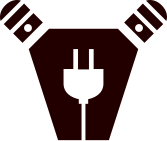Application¶
Minimal application setup¶
To create a Flask application using Flask-PluginEngine we need to define it as a PluginFlask application. It’s a regular Flask application object that can handle plugins:
from flask_pluginengine import PluginFlask
app = PluginFlask(__name__)
@app.route("/")
def hello():
return "Hello world!"
if __name__ == "__main__":
app.run()
Now we need to set up the configuration, specifically the namespace of the plugins and the plugins we want to use.
Let’s use the example_plugin we created before. For example:
app.config['PLUGINENGINE_NAMESPACE'] = 'example'
app.config['PLUGINENGINE_PLUGINS'] = ['example_plugin']
Next we need to create an instance of PluginEngine for our app and load the plugins:
plugin_engine = PluginEngine(app=app)
plugin_engine.load_plugins(app)
Then, we can access the loaded plugins by calling the get_active_plugins() method, which will return a dictionary containing the active plugins.:
active_plugins = plugin_engine.get_active_plugins(app=app).values()
To check if all of the plugins were loaded correctly we can also call the get_failed_plugins() method that will return a dictionary with plugins that failed to load.
Example application functionality¶
To understand the possibilities of Flask-PluginEngine we will create a Jinja template where we will list all the plugins we are using.
Let’s create two templates, base.html and index.html.
Our files should be structured like below, where app.py is the file with the application code:
app
├── app.py
└── templates
├── base.html
└── index.html
base.html
<!DOCTYPE html>
<html lang="en">
<head>
<meta charset="UTF-8">
<title>Flask-PluginEngine example</title>
</head>
<body>
{% block content %}
{% endblock %}
</body>
</html>
index.html
{% extends 'base.html' %}
{% block content %}
{% for plugin in plugins %}
<div>{{ plugin.title }} - {{ plugin.description }}</div>
{% endfor %}
{% endblock %}
And let’s pass the plugins, when rendering the template in our application:
@app.route("/")
def hello():
return render_template('index.html', plugins=active_plugins)
Now what we should also do is to register the blueprints of all our plugins, for instance:
for plugin in active_plugins:
with plugin.plugin_context():
app.register_blueprint(plugin.get_blueprint())
So our application code looks like this:
from flask import render_template
from flask_pluginengine import PluginFlask, PluginEngine
app = PluginFlask(__name__)
app.config['PLUGINENGINE_NAMESPACE'] = 'example'
app.config['PLUGINENGINE_PLUGINS'] = ['example_plugin']
plugin_engine = PluginEngine(app=app)
plugin_engine.load_plugins(app)
active_plugins = plugin_engine.get_active_plugins(app=app).values()
for plugin in active_plugins:
with plugin.plugin_context():
app.register_blueprint(plugin.get_blueprint())
@app.route('/')
def hello():
return render_template('index.html', plugins=active_plugins)
if __name__ == '__main__':
app.run()
Now when we go to the index page of our application we can access the plugin’s template. We can also directly access it if we go to /plugin.
You can find the source code of the application in the example folder.
Configuring Flask-PluginEngine¶
The following configuration values exist for Flask-PluginEngine:
|
Specifies a namespace of the plugins |
|
List of plugins the application will be using |

